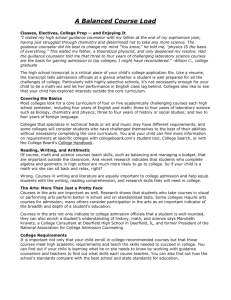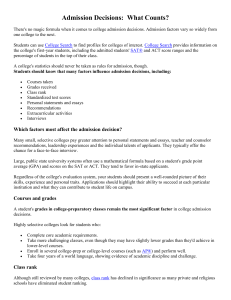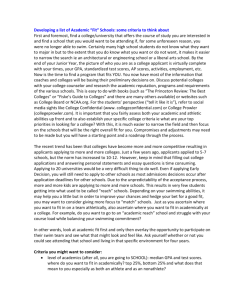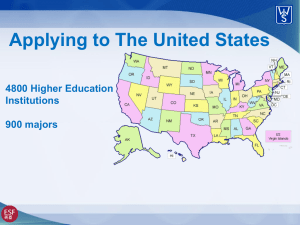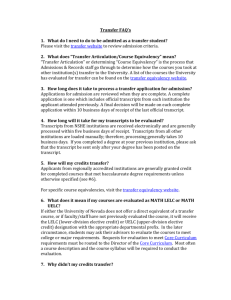Social - Miami Sunset Senior High School
advertisement
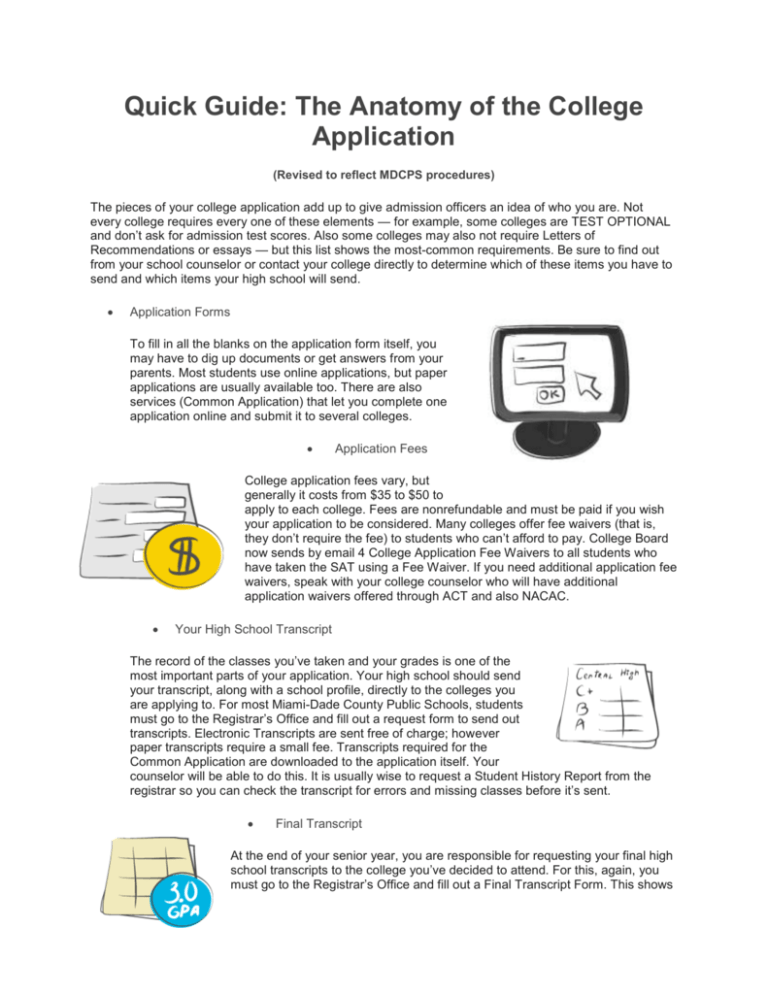
Quick Guide: The Anatomy of the College Application (Revised to reflect MDCPS procedures) The pieces of your college application add up to give admission officers an idea of who you are. Not every college requires every one of these elements — for example, some colleges are TEST OPTIONAL and don’t ask for admission test scores. Also some colleges may also not require Letters of Recommendations or essays — but this list shows the most-common requirements. Be sure to find out from your school counselor or contact your college directly to determine which of these items you have to send and which items your high school will send. Application Forms To fill in all the blanks on the application form itself, you may have to dig up documents or get answers from your parents. Most students use online applications, but paper applications are usually available too. There are also services (Common Application) that let you complete one application online and submit it to several colleges. Application Fees College application fees vary, but generally it costs from $35 to $50 to apply to each college. Fees are nonrefundable and must be paid if you wish your application to be considered. Many colleges offer fee waivers (that is, they don’t require the fee) to students who can’t afford to pay. College Board now sends by email 4 College Application Fee Waivers to all students who have taken the SAT using a Fee Waiver. If you need additional application fee waivers, speak with your college counselor who will have additional application waivers offered through ACT and also NACAC. Your High School Transcript The record of the classes you’ve taken and your grades is one of the most important parts of your application. Your high school should send your transcript, along with a school profile, directly to the colleges you are applying to. For most Miami-Dade County Public Schools, students must go to the Registrar’s Office and fill out a request form to send out transcripts. Electronic Transcripts are sent free of charge; however paper transcripts require a small fee. Transcripts required for the Common Application are downloaded to the application itself. Your counselor will be able to do this. It is usually wise to request a Student History Report from the registrar so you can check the transcript for errors and missing classes before it’s sent. Final Transcript At the end of your senior year, you are responsible for requesting your final high school transcripts to the college you’ve decided to attend. For this, again, you must go to the Registrar’s Office and fill out a Final Transcript Form. This shows your college what classes you took and whether you kept your grades up during your last year in high school. Colleges have the right to reverse your admissions decision if they feel that you have caught a serious case of Senioritis. Admission Test Scores Some colleges require or recommend that you send scores from tests such as the SAT or ACT. Colleges accept scores only from the testing organizations themselves. Visit the testing organization's website for more information. And learn more about the role of testing in college admission. Letters of Recommendation Many colleges, but not all, require letters of recommendation from teachers or other adults who know you well. Ask your references well in advance of the deadlines to write you a recommendation. You may want to give them a short written summary of your achievements to help them write about you. Essays Your essays are a chance for you to give admission officers a better idea of your character and strengths. Remember to proofread your essays carefully before you send them in. Once again, not all colleges require an essay. Auditions and Portfolios If you’re applying to music, art or theater programs, the colleges may want to see samples of your work. This means you may need to audition or send portfolios or videos showing your artistic ability as part of your application. Your essays are a chance for you to give admission officers a better idea of your character and strengths. Remember to proofread your essays carefully before you send them in. Interviews It’s a good idea to ask for an interview, even if it’s not required. It shows you’re serious and gives you a chance to connect with someone in the admission office. Even if a college is far away, you may be able to interview with a local alumnus. Read What to Do Before and After Your College Interview to prepare. WORD OF ADVICE!!! Get Organized If you can keep track of everything you need, you’ll be ahead of the game. For each college you’re applying to: Create a real and a virtual folder for storing documents. Print a checklist to track your progress on each part of the application. Gather these numbers and resources: Your Social Security number Your high school code A copy of your high school transcript Your score report from a college admission test Now you’re informed, inspired, organized and ready to begin. Florida State Residency Requirements If you are planning to attend either a public university, or community college you may be eligible to receive reduced tuition fees if you and your parents have lived in Florida for at least one year. If you are under 24 years of age, you will be considered a “dependent” student. This means that if you wish to be considered a Florida resident for tuition purposes, you MUST provide at least two items of the following information of either your mother or father: 1. Your parent’s driver’s license number 2. Your parent’s vehicle registration number 3. Your parent’s voter registration number. If you are a US resident, then you will need to send a copy of your parents residency card (both sides) Too many students do this wrong by providing their information – do not do this. You will delay your acceptance and be charged as an out of state student. A Word About Follow-up Never assume that everything works the way that it’s expected to. Some admissions offices have a habit of misfiling, or losing your documents. Many colleges now have an on-line tracking system that will tell you where your application is in the process as well as what documents have been received. You should periodically check your student account to make sure that all your documents have been received. Generally I suggest that you wait for two weeks before getting on the phone to call the college to confirm receipt of any documents received.
